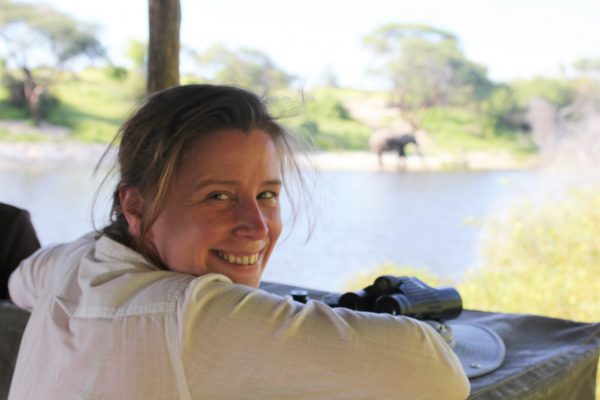Name
Kirsty Park
Job title
Professor in Conservation Science
What course/subject did you study?
Biology at undergraduate level at Leeds University, and then a PhD in bat ecology at Bristol University.
Briefly describe what you do and your areas of interest in your particular field?
I work in the very broad field of conservation biology – my research focusses on how the impacts human activity biological diversity (habitats, species and their populations), and what measures we can take to mitigate negative effects. This means my group and I spend a lot of time thinking about management interventions and policy measures that could help restore degraded habitats and boost declining populations. I work across a wide range of taxa, but I usually manage to fit bats in there somewhere (a particularly interesting group of animals, for whom I have a very soft spot!).
What got you interested in science/STEM?
I was always interested in natural history… an avid fan of nature documentaries (and David Attenborough!) from childhood. I found biology at school fascinating and for me there was no question that this was what I would do at University.
In your opinion, what makes a scientist?
A sense of curiosity – about how the world works, why things are like they are and (for some fields) how to use this knowledge to develop tools and solutions for solving problems.
What is the coolest thing about your work?
This is going to sound very corny but it is true that one of the things I love most about what I do is the people I work with. You can choose who you work with in science and I would strongly advocate choosing people you have fun with and who respect you. Life is too short for anything else. Some of my best work moments over the last 10 years have involved being in the field or at a residential retreat with colleagues – this might involve collecting data, coming up with new ideas about how to address a particular question, or poring over the results of an analysis (and trying to figure out what it means!).
If you could have dinner with 3 scientists (living or dead) who would you invite?
David Attenborough, Mary Anning, Charles Darwin. If you don’t know who Mary Anning is, you really should – an self-taught scientist in the early 19th C living in Lyme Regis. She discovered complete skeletons of the marine reptiles ichthyosaurs and plesiosaurs, as well as making many other important palaeontological findings. However because she was a woman she didn’t receive the credit she was due – I would love her to know that she’s now recognised as one of the most influential women in the history of science (by an organisation she wouldn’t even have been eligible to join in those days). A lovely footnote to this story is that an 11-year old girl, outraged by a lack of any statue in recognition of Anning’s achievement, has now raised almost £100K to install one in Lyme Regis, Anning’s home and where she made many of her discoveries.
In your opinion, what’s the most exciting problem in science/STEM currently facing humanity?
Exciting feels the wrong word here really. The combined climate emergency and biodiversity crisis driven by human activity is a very real threat to us and everything else on the planet. Some of the solutions are already there but science isn’t going to solve this alone – it needs political will and public buy-in.
If you didn’t pursue a career in science, what other line of work do you think you would have went into?
Something related to conservation and nature. After my PhD I applied for lots of positions which were more focussed on the practical and policy ends of the conservation world – I got nowhere. I just didn’t have the direct relevant experience. I loved research but I didn’t see it as a career for me (and certainly not within academia). Then a postdoc at Stirling came up and I started to really relish the academic freedom you have working as a scientist at a University.
What words of advice do you have for young people thinking of a career in STEM?
For most STEM careers a degree is required but it’s not sufficient on its own. Develop a particular interest in something – it can be anything as long as it interests you sufficiently for you to gain a deep knowledge in this area. It could be developing identification skills so you can identify organisms to species or learning field skills in an area that fascinates you. There are a huge range of organisations out there that can help you and it doesn’t necessarily need to cost you to develop these skills – there are many charities that will be happy to train you in survey skills in return for monitoring data. Getting involved with charities and other organisations can also be a great way of developing networks, making friends and keeping you going when times are tough.

